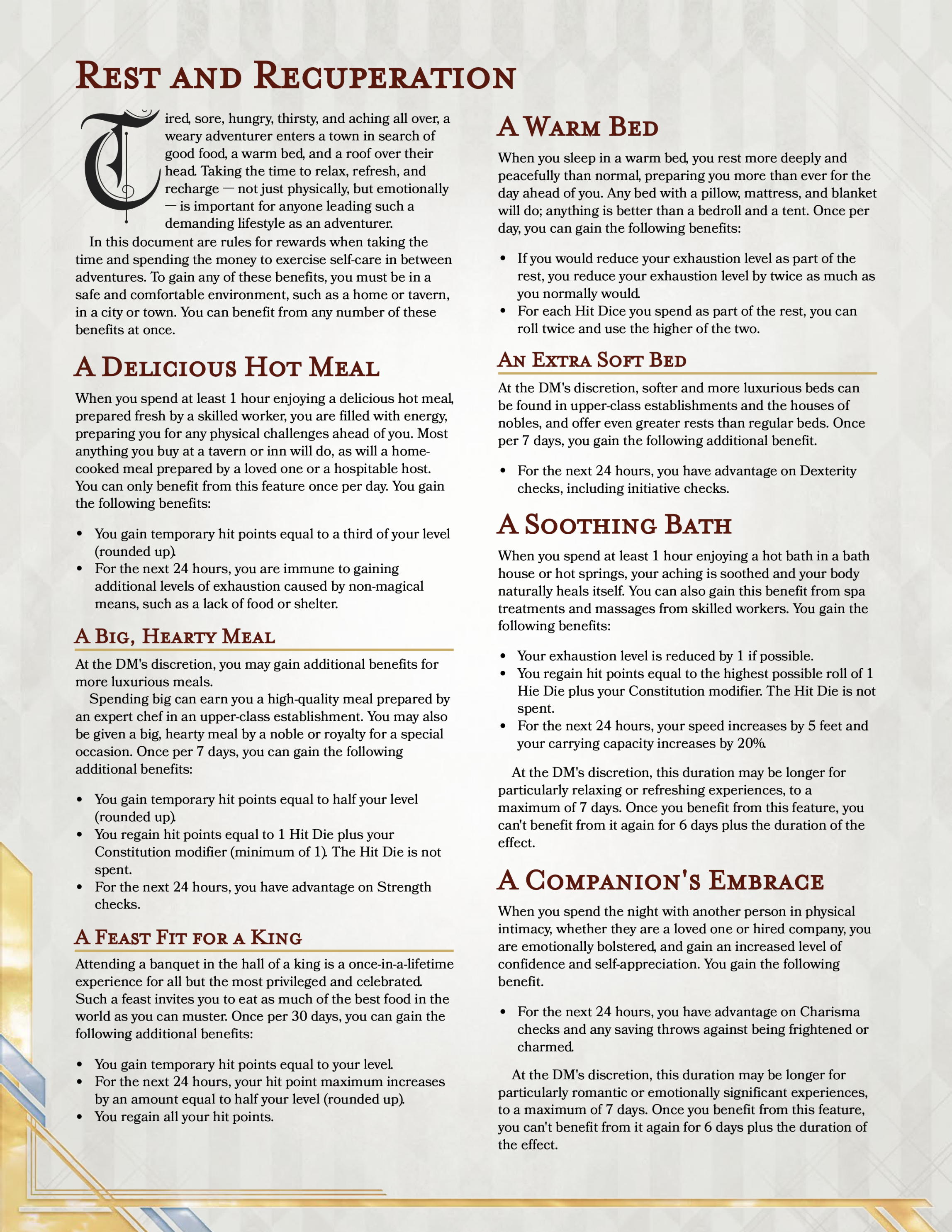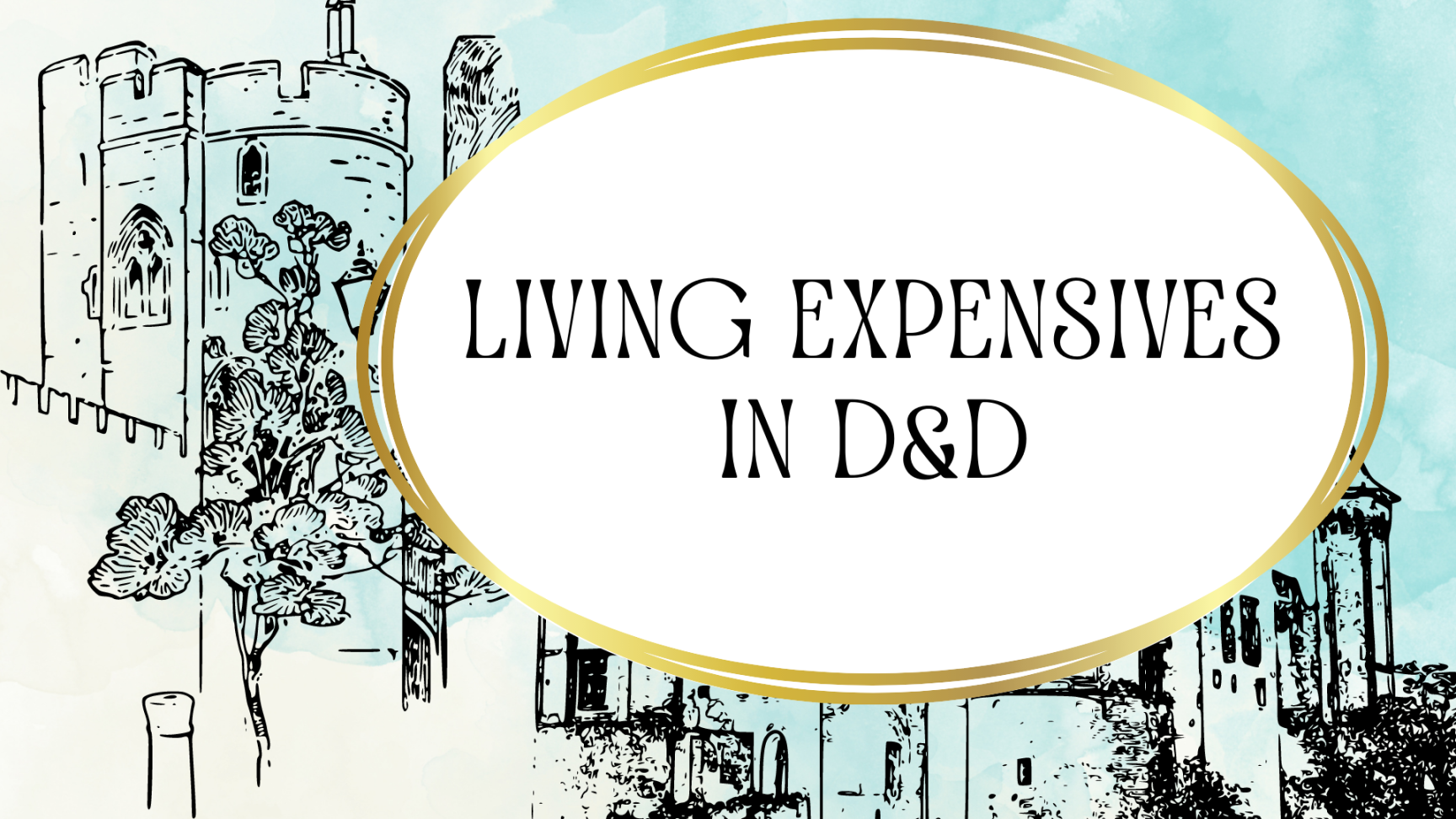1. Character Creation: Building Your Adventurer
So, you’ve decided to embark on a journey through the realms of Dungeons & Dragons 5th Edition. The first step is to create your character, the foundation of your adventuring experience. This is where you’ll shape a unique individual who will face challenges, overcome obstacles, and forge unforgettable memories.
Choosing Your Race

The first step is to select your race. Each race offers distinct abilities and traits that can shape your character’s playstyle. Humans, for example, are versatile with their ability to choose two skills at the start of the game. Elves possess natural grace and proficiency in certain skills, while dwarves are hardy and resistant to poison. Consider the strengths and weaknesses of each race and choose one that aligns with your desired role in the party.
Selecting Your Class
Your class determines your character’s role in the group and the skills they possess. Fighters are skilled warriors, while wizards are powerful spellcasters. Rogues are stealthy and adept at trickery, while clerics are divine healers and spellcasters. Each class has its own unique abilities and mechanics, so choose one that excites you and fits your preferred playstyle.

Assigning Your Ability Scores
Ability scores are the foundation of your character’s abilities. They determine your strength, dexterity, constitution, intelligence, wisdom, and charisma. You can allocate points to these scores based on your character’s concept and desired abilities. A fighter might prioritize strength and constitution, while a wizard might focus on intelligence and wisdom.
Creating Your Background
Your background provides context for your character’s life and experiences. It includes your personality traits, ideals, bonds, and flaws. Consider your character’s upbringing, occupation, and any significant events that have shaped their life. A noble background might grant you proficiency in history and persuasion, while a criminal background might provide proficiency in stealth and deception.
Choosing Your Equipment
Your equipment is essential for adventuring. It includes weapons, armor, and other items that you’ll use to survive and succeed in the world. Consider your class and role in the party when selecting your equipment. A fighter might choose a sword and shield, while a rogue might prefer a dagger and light armor.
Putting It All Together
Once you’ve chosen your race, class, ability scores, background, and equipment, you’ll have a well-rounded character ready for adventure. Take some time to flesh out your character’s personality and backstory, giving them depth and dimension. The more invested you are in your character, the more enjoyable your gaming experience will be.
Remember, character creation is a creative process. Don’t be afraid to experiment and have fun. The most important thing is to create a character that you’re excited to play and that fits your vision of the game. With a well-crafted character, you’re ready to embark on a thrilling journey through the realms of Dungeons & Dragons.
2. Character Creation: Building Your Adventurer
Creating a character is the first step on your journey into the Forgotten Realms. It’s like choosing your avatar in a video game, but with a whole lot more depth and personality. Let’s dive into the exciting world of character creation!
Race and Class:
Your race and class are the foundation of your character. Your race determines your physical attributes, while your class defines your abilities and skills.
Races: Humans, elves, dwarves, halflings, gnomes, tieflings, dragonborn, half-elves, half-orcs, and many more! Each race has its own unique strengths and weaknesses. For example, humans are versatile, elves are graceful, and dwarves are hardy.
Ability Scores:
Ability scores represent your character’s inherent abilities. There are six ability scores: Strength, Dexterity, Constitution, Intelligence, Wisdom, and Charisma. Each ability score affects different skills and abilities. For example, Strength is important for combat, Dexterity is important for ranged attacks and stealth, and Intelligence is important for spellcasting and problem-solving.
Skills:
Skills are specific abilities that your character can perform. They are tied to your ability scores. For example, the Athletics skill is tied to Strength, the Stealth skill is tied to Dexterity, and the Arcana skill is tied to Intelligence.
Alignment:
Your alignment represents your character’s moral and ethical outlook. There are three main alignments: Lawful, Neutral, and Chaotic. Lawful characters follow rules and traditions, Neutral characters are balanced between law and chaos, and Chaotic characters are free-spirited and unpredictable.
Background:
Your background defines your character’s upbringing, profession, and goals. It provides you with skills, abilities, and equipment that are relevant to your character’s history. For example, a Noble background might give you proficiency in History and Persuasion, while a Criminal background might give you proficiency in Deception and Stealth.
Personality:
Your personality is the unique traits that make your character who they are. It includes their likes, dislikes, fears, and motivations. A well-developed personality can make your character more interesting and memorable.
Equipment:
Your equipment is the gear that your character carries. It includes weapons, armor, and other items that can help or hinder your character in their adventures.
Creating a Memorable Character
When creating your character, think about what kind of adventurer you want to be. Do you want to be a fearless warrior, a cunning thief, or a powerful spellcaster? What kind of challenges do you want to face? What kind of rewards do you want to earn?
Once you have a general idea of what kind of character you want to create, start filling in the details. Choose a race and class that fit your character’s concept. Assign ability scores that reflect your character’s strengths and weaknesses. Select skills that are relevant to your character’s background. Decide on an alignment that matches your character’s moral outlook. And finally, develop a personality that makes your character unique.
Remember, your character is a reflection of your imagination. Have fun creating a memorable adventurer that you can enjoy playing for years to come.
 Udento Lifestyle & Health
Udento Lifestyle & Health




